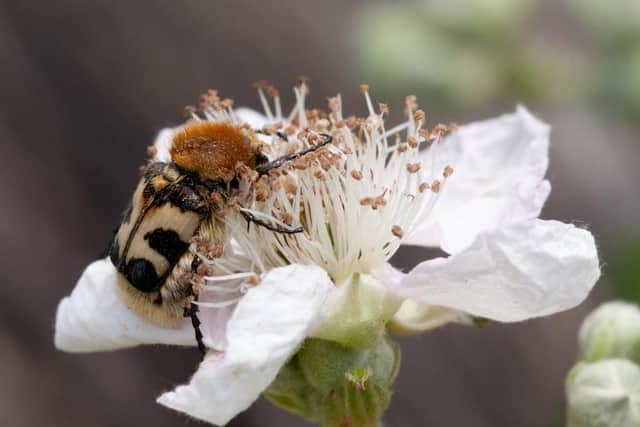Sheffield and Rotherham Wildlife Trust calls on residents to stop using peat in their gardens to protect insects
and live on Freeview channel 276
The trust are calling on residents to stop using peat – more commonly known as turf – in their gardens because of the impact it has on insects.
It comes after garden centres were among the first businesses allowed to reopen since the government ordered all non-essential shops to close due to the coronavirus outbreak.
Advertisement
Hide AdAdvertisement
Hide AdThe charity made the call for people to ditch the major composting ingredient as part of their Action for Insects campaign - which aims to ensure the future of insects by asking the community to make changes that are beneficial to wildlife.


Peat which is made up of decayed organic matter and vegetation, develops slowly under wet conditions for over thousands of years and is naturally found in bogs and moors.
The turf is then dug out of wild places to use for gardening – which has left more than 94% of the UK’s lowland peat bogs destroyed or damaged and caused a wide variety of rare dragonflies and spiders to disappear with it.
Sheffield and Rotherham Wildlife Trust are now encouraging shoppers to buy peat-free compost such as bark chippings, coconut shells or composting waste from your own home and garden to protect the declining wildlife.
Advertisement
Hide AdAdvertisement
Hide AdAdvocacy Officer for Sheffield and Rotherham Wildlife Trust Ian Cracknell said: "Insects are arguably the most important species on the planet for the essential ecosystem services they provide, from pollinating the majority of our food crops to providing a key food source for many other animals.
“Sadly, insect populations are now suffering worrying declines, with 41% of species currently facing extinction.
"We now have a critical chance to reverse these declines by creating better insect habitats in our gardens and reducing our use of pesticides, or even better by going pesticide free. “But we also have an opportunity to protect important places for wildlife every time we buy our gardening supplies.”